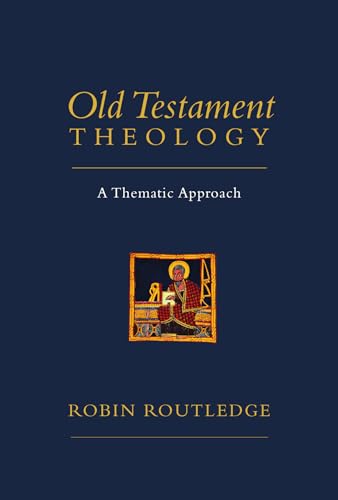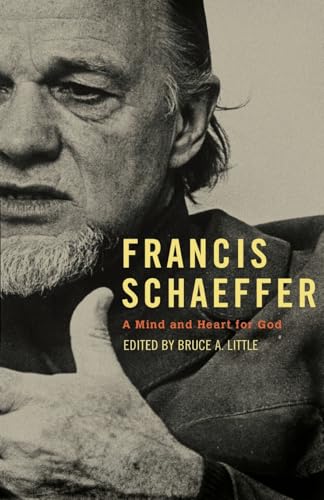Old Testament Theology: A Thematic Approach
Written by Robin Routledge Reviewed By Igal GermanIn Old Testament Theology: A Thematic Approach, Robin Routledge, a senior lecturer in Old Testament at Mattersey Hall in England, gives a comprehensive overview of OT theology by presenting central issues and themes, a goal that is probably related to his doctoral studies at Sheffield University on the purpose of God in the OT. Embarking on the study of biblical theology, Routledge seeks to make the enormous task of OT theology accessible to both pastors and beginning students. In ten chapters, Routledge tackles the OT from the perspective of its most significant theological theme, namely, God, giving full attention to God’s dealings with other ‘gods,’ his creation, his people, future, and the nations.
In the preface to the book, Routledge unfolds his own perspective on studying OT theology. Acknowledging the existence and usefulness of many other OT theologies appearing on the shelf, Routledge seeks to provide the reader with an informative outline of the discipline for the benefit of those beginning the task of studying the OT. Routledge says that his goal is “to look at the theological significance of the text within its canonical context, noting unity and coherence within the OT (and to some extent between the OT and the NT), while being aware of diversity” (p. 9). The book is a result of many years of teaching Scripture and pastoral ministry, featured by an unambiguous Christian perspective and evangelical perception of the OT.
Routledge covers a wide array of subjects and topics in this thematic approach to OT theology. This introductory book deals with issues that are common to most works of theology such as God’s faithfulness, covenants, and punishment, but it also deals with ethics, morality, and law. Insofar as the approach keeps Christ in view as it goes about dealing with the OT, Routledge does understand, and he informs the reader regularly that the scriptures of Israel find their ultimate fulfillment in Christ. In the first chapter, Routledge surveys a plethora of methodologies starting from John Cassian in antiquity to Brueggemann and Goldingay in contemporary scholarship, and he outlines four stages in the interpretative process: exegesis, biblical theology, dogmatics, and homiletics. Indeed, he argues in favor of a balance between the historical critical method and the canonical method.
Discussing the core of OT theology, the doctrine of God, an important discussion about the divine names and the origins of monotheism precedes his talk on God’s nature and being. The nature of God is personal and spiritual, whereas holiness, righteousness, love, faithfulness, and wrath describe God’s very being. A section on the Spirit of God and what Routledge calls “other supernatural beings” (demons, angels, sons of God, Satan, etc.) conclude this chapter. In chapter 3 on God and creation, the story of creation is told in comparison with ANE counterparts. It is a theological interpretation of divine reality, and it unfolds God’s transcendence, immanence, authority, and redemption. The relationship between God and his people is determined by the terms of election and covenant (chap. 4). Next (chap. 5), Routledge offers a discussions on the place of worship, cult, religious festivals, sacrifices, prayer, music, and singing. The prophetic material and the wisdom literature are covered under the topic “receiving divine instruction” (chap. 6). The following chapter (chap. 7) deals with kingship in Israel. The ruler is meant to represent God in Israel by administering true justice, but also expected to lead the people in worship. Chapter 8 addresses the issue of ethics and ethical questions under the topic “God and his people.” Chapter 9, God and the future, presents hope as a theological concept whereby the future is envisaged by three key concepts: the Lord’s day, God’s battle with the chaotic powers, and Zion or Zion tradition(s) found in prophetic literature and elsewhere. The reader will also find other lengthy discussions on eschatological issues such as Messiah, Sheol, death, and resurrection. The last chapter (chap. 10) concludes the book by recalling an early theme: God’s dealings with the nations. Since the Gentiles were part of God’s dealings with Israel right from the outset of biblical history, it is natural that the OT is rightly considered the heritage of Christian as well. The book ends with selected and supplementary bibliographies and indexes of Scripture references, names, and subjects.
Routledge takes great pains to extensively annotate, footnote, and provide bibliographical information. The footnotes supplement quite well the ongoing discussion of the material under examination, and the author offers suggestions for further reading and research. Another positive note is that the book is not overly technical (no knowledge of biblical languages is assumed). Some readers maybe surprised by the author’s affinity with ANE practices when he compares them with those found in the OT. Given the main thrust of the work, one might be disappointed that the discussion of revelation lacks depth. The theme of revelation is mentioned only by passing. However, the book’s many strengths outweigh its weaknesses. Robin Routledge has written a valuable and readable guide to the OT theology that will serve many pastors and non-specialists. It will be useful in preaching and teaching in academic and non-academic settings. I assume that this introduction will be warmly welcomed by biblical scholars, undergrad students, and all whose minds are open to learn more about God and his ways as revealed in the Bible.
Igal German
Igal German
Wycliffe College, University of Toronto
Toronto, Ontario, Canada
Other Articles in this Issue
I didn’t come from an Evangelical home, and though he never told me outright, I’m sure my father never wanted me to become a pastor...
Does Baptism Replace Circumcision? An Examination of the Relationship between Circumcision and Baptism in Colossians 2:11–12
by Martin SalterReformed paedobaptists frequently cite Col 2:11–12 as evidence that baptism replaces circumcision as the covenant sign signifying the same realities...
New Commentaries on Colossians: Survey of Approaches, Analysis of Trends, and the State of Research
by Nijay GuptaNew Testament scholarship in its present state is experiencing a time of abundance, especially with respect to biblical commentaries of every shape, length, level of depth, theological persuasion, intended audience, and hermeneutical angle...
It might seem odd to write an editorial for a theological journal on the topic of not doing theology and how important that can be; and, indeed, perhaps it is contrarian even by my own exacting standards...
Most readers of Themelios will be aware that the word “perfectionism” is commonly attached in theological circles to one subset of the Wesleyan tradition...







